After escaping the Taliban for Wisconsin, these women take on the high cost of college
Ten students at UW-Milwaukee thought they had full scholarships, but now these Afghan evacuees are scrambling to pay for school.
Wisconsin Watch
November 16, 2022
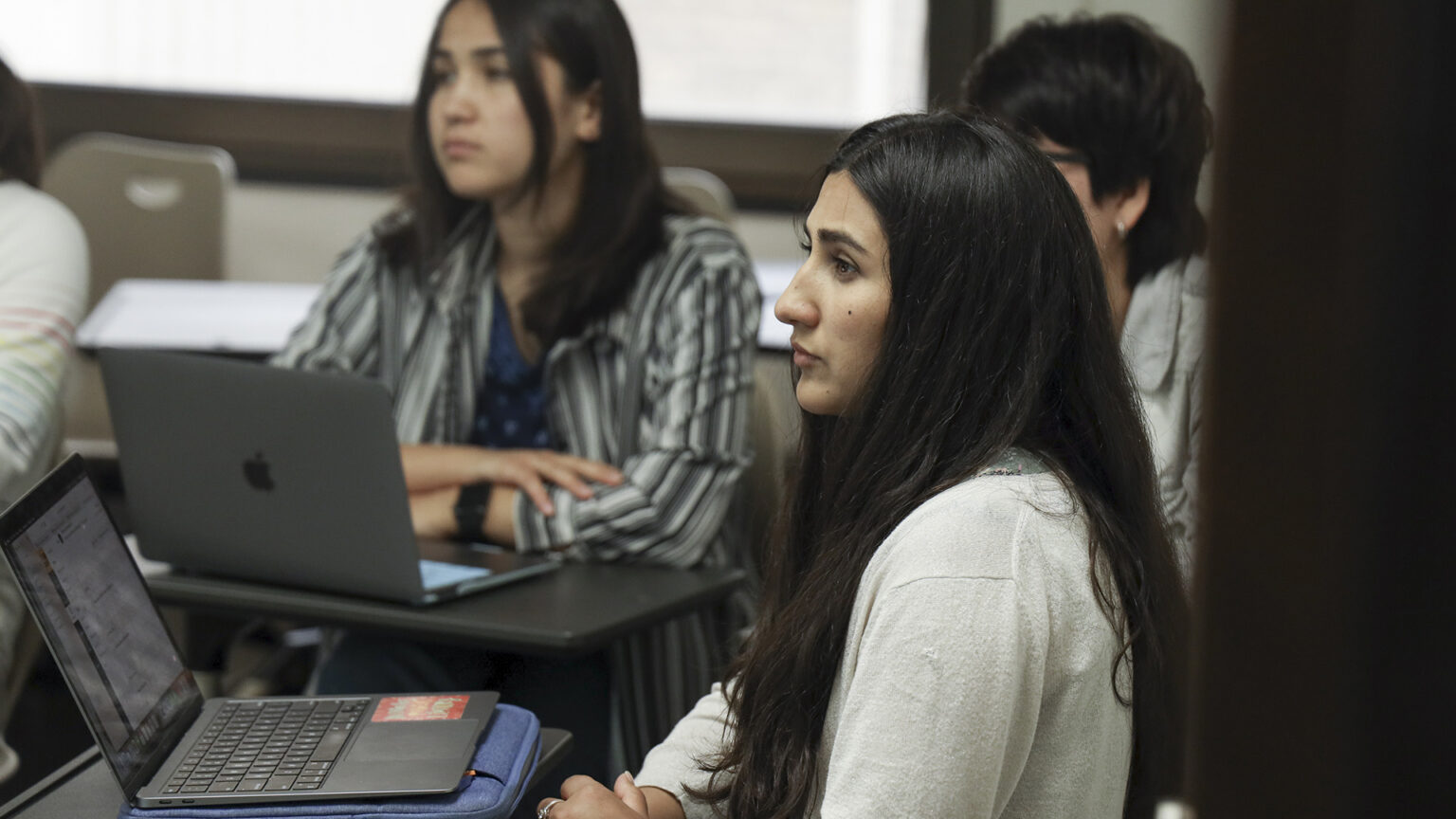
Manizha Nazari, in the background, and Mahrukh Delawarzad, in the foreground, listen to their instructor during a summer writing course at the University of Wisconsin-Milwaukee on Aug. 3, 2022. The classes helped prepare the Afghan evacuees for the fall semester at UW-Milwaukee, where they are pursuing bachelor's degrees. (Credit: Amena Saleh / Wisconsin Watch)

During the chaotic withdrawal of U.S. troops last year from Afghanistan, 148 students from the Asian University for Women made a dramatic escape, narrowly missing gunfire and suicide bombs set off at the overrun Kabul Airport.
Despite the dangers, the women were determined. They knew that with the Taliban back in power, their dreams of a college education would likely soon be over.
During the 20 years of U.S. occupation, the number of Afghan women in higher education increased from around 5,000 in 2001 under the previous Taliban rule to about 90,000 in 2018, the United Nations found.
In late summer, the fleeing students ended up at Wisconsin’s Fort McCoy, where they tutored fellow evacuees in English as they waited to find out where they would be resettled.
The women, ranging in age from 18 to 25, are now scattered across 10 universities in the United States. But for some of these students, including 10 women at the University of Wisconsin-Milwaukee, they face a new challenge: paying for college.
Due to a miscommunication, Mahrukh Delawarzad and other young women believed they had been offered free college tuition and housing at UW-Milwaukee. But the offer financed by a local church — generous as it was — covered just the cost of the university’s Intensive English Program.
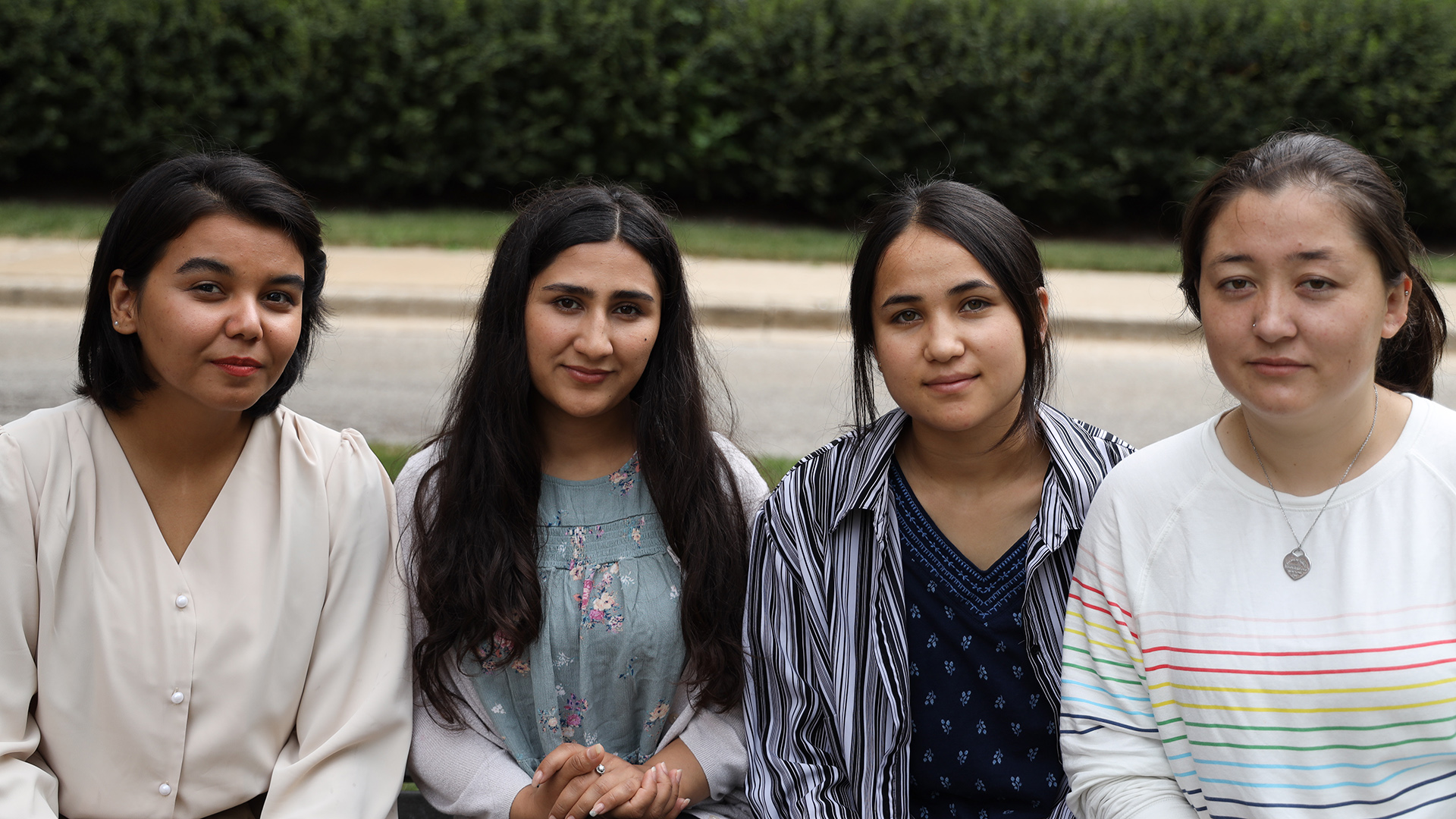
From left, Tahera Sultani, Mahrukh Delawarzad, Manizha Nazari and Shekiba Sultani are Afghan evacuees who fled their country in 2021 and are now studying at the University of Wisconsin-Milwaukee. Due to a miscommunication, the women thought they were being offered full scholarships to pursue their bachelor’s degrees and are now scrambling to raise enough money to pay for college. Photo taken Aug. 3, 2022. (Credit: Amena Saleh / Wisconsin Watch)
Of the nearly $6.5 billion in federal funds set aside for resettlement of the 76,000 Afghan evacuees, none is available for higher education.
Educators have urged Congress to provide additional support for displaced students. And in June, the U.S. Department of Education made some Afghan evacuees eligible for federal student aid, which may help the students pay for UW-Milwaukee’s tuition, which costs $9,610 a year.
Delawarzad and the others say they’re not sure how they will pay for their education with no family support and temporary legal status. But they said they would consider applying for federal aid.
She dreams of getting a degree in public health and then going to medical school. Having lived through a protracted war and dangerous journey from her native land, Delawarzad knows life is precious.
“I want to save lives,” she said.
Daring escape
During the pandemic, the women had been studying remotely at the Bangladesh-based Asian University for Women, which has since suspended “hybrid” instruction. Kamal Ahmad, a U.S. citizen and founder of the university, said he started receiving messages around June 2021 from the students, “worried about the political changes that are coming into this country.”
Ahmad began orchestrating the evacuation from his office in Cambridge, Massachusetts, arranging to get the students to the U.S. military-controlled Kabul airport.
With the Aug. 31, 2021 withdrawal deadline fast approaching, the window of opportunity to flee was closing. Seven buses packed with university students passed through snarled traffic. On the evening of Aug. 23 into Aug. 24, while making their second approach to the airport — a 40-hour ordeal — the U.S. military suggested the group return home.
Delawarzad was on one of those buses. She said every young woman, despite exhaustion, dehydration and fear, reminded themselves why they were there: to get out and get an education.
The women persuaded Ahmad to give it a final try. He called a Taliban contact, persuading him to let the buses pass through the checkpoints on the way to the airport. Ahmad also tapped into political support in the United States, gaining help from the White House.
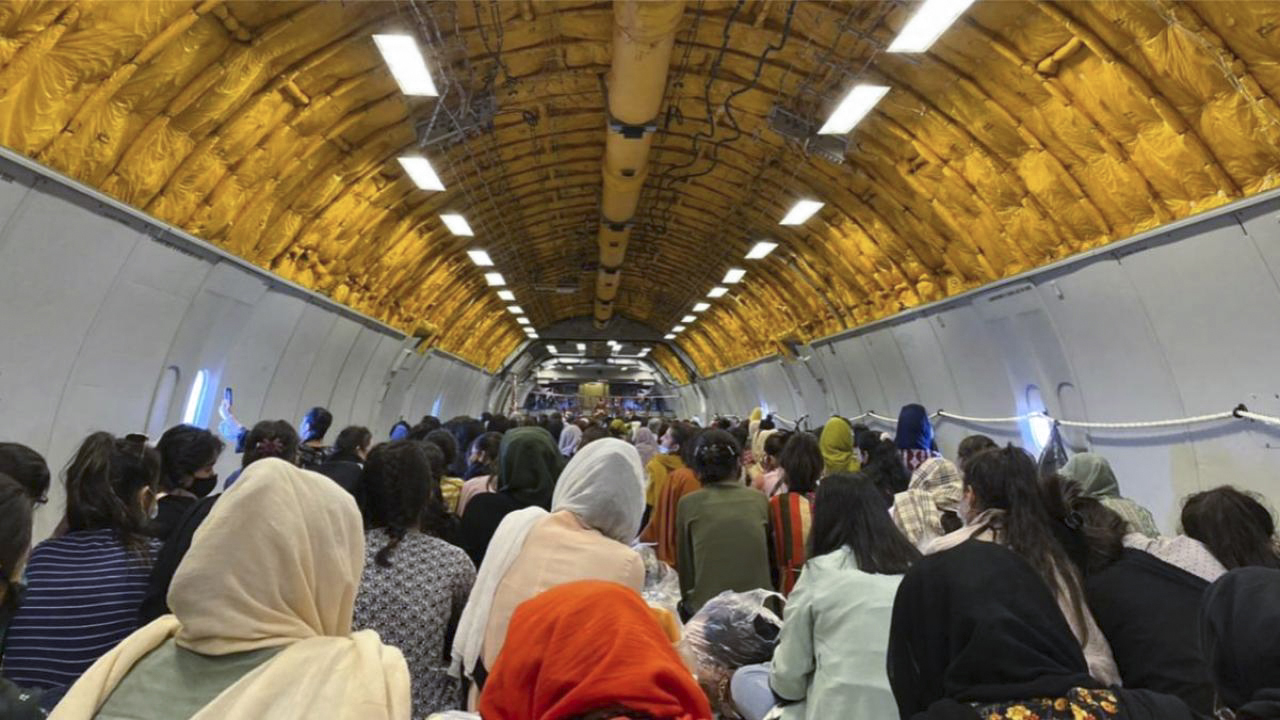
On Aug. 28, 2021, 148 students from the Asian University for Women made a harrowing escape from Afghanistan in a desperate bid to continue their college educations. The U.S. troop withdrawal in late August 2021 caused the Afghan government to collapse — and the repressive Taliban to quickly regain control. Several of the women landed at Fort McCoy, where they were offered chances to continue their schooling. Ten of them ended up at the University of Wisconsin-Milwaukee. (Credit: Courtesy of Asian University for Women)
All 148 students made it, boarding an Air Force C-17 on Aug. 27, 2021. When the airplane’s door closed, Simah Sahnosh, another student, was overwhelmed, saying to herself, “I leave behind my pride, my memories, my dreams, my traditions, my happiness, my family, and my homeland.”
But the women didn’t know where they were heading next — to Bangladesh, to continue their studies — or somewhere else?
Life as evacuees — and students
When they landed in Spain, the women found out they were not bound for Bangladesh but for the United States. Delawarzad said she felt a sense of relief, knowing they would be treated as refugees. She called her mother in Afghanistan and told her not to worry.
Scott Stevens, president of the University and College Intensive English Programs, was following the women’s well-publicized escape. When he learned of the need for English language training to continue their studies, he spread the word to other members of the consortium, which includes his own University of Delaware.
The challenge was daunting, with the universities “not prepared to absorb the costs of special needs of displaced students.” But consortium members stepped up, offering to host 55 of the evacuees.
“At the end of the day, universities choose to do the right thing. They choose to stand up for these women,” Stevens said.
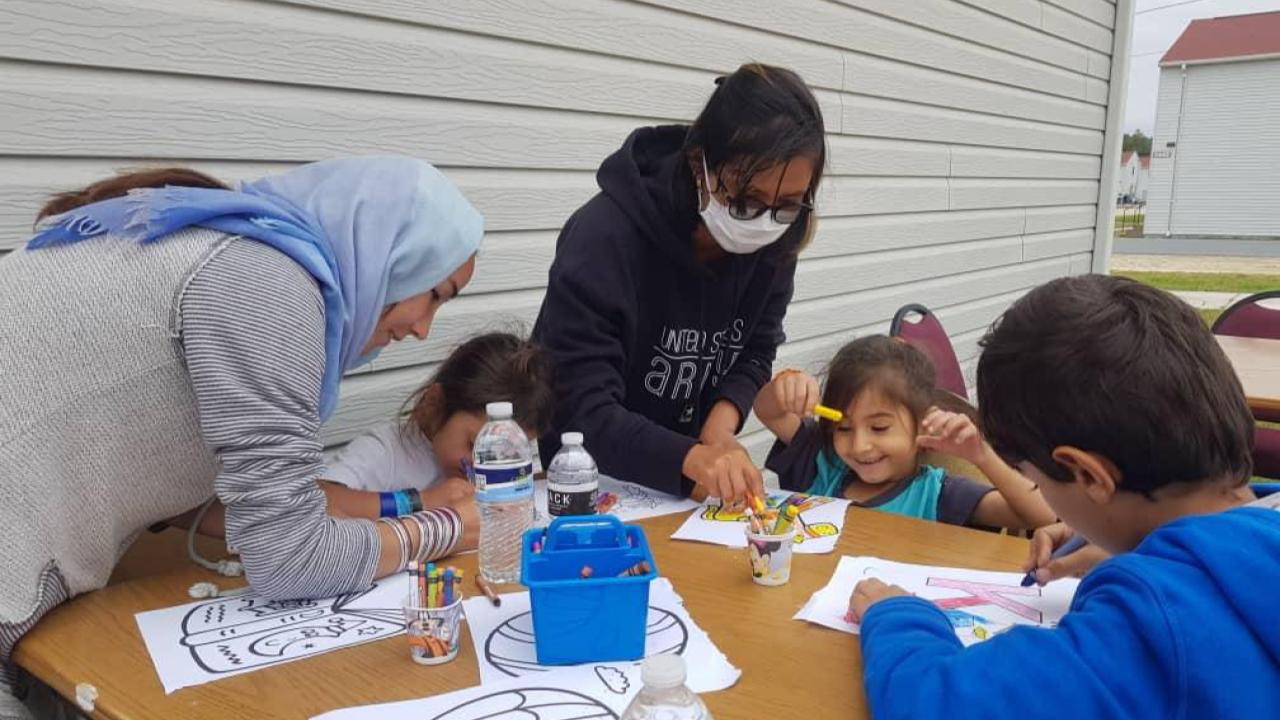
Two former Asian University for Women students draw pictures with Afghan children at Fort McCoy on Sept. 15, 2021. Ten of the women who fled Afghanistan after the Taliban retook control are now continuing their college studies at the University of Wisconsin-Milwaukee. (Credit: Courtesy of Asian University for Women)
In addition to UW-Milwaukee, nine other universities agreed to offer English language training or admit the students as undergraduates, including West Virginia, North Texas, Georgia State, Delaware, Suffolk, DePaul, Arizona State, Cornell and Brown. Ahmad estimates about $32 million has been committed by the schools to educate the 148 women.
Brooke Haley, director of UW-Milwaukee’s English Language Academy, offered to help but was told the university was not in a position to pay the tuition of the evacuees.
Between 2010 and 2020, UW-Milwaukee experienced a 21% drop in enrollment, the second worst decline of any four-year UW System campus, according to the Wisconsin Policy Forum. And the pandemic made it worse, prompting a loss by July 2021 of $91.8 million in income from tuition and room and board as enrollment dropped.
Ahmad, who was born in Bangladesh, knows a U.S. education is not cheap, especially at elite schools. He moved here in 1980, attending the Phillips Exeter Academy, Harvard and then University of Michigan.
‘Full scholarship’ promised
While still at Fort McCoy, the women began receiving college acceptance letters. Sahnosh was accepted by Cornell, which she described as a “top” university.
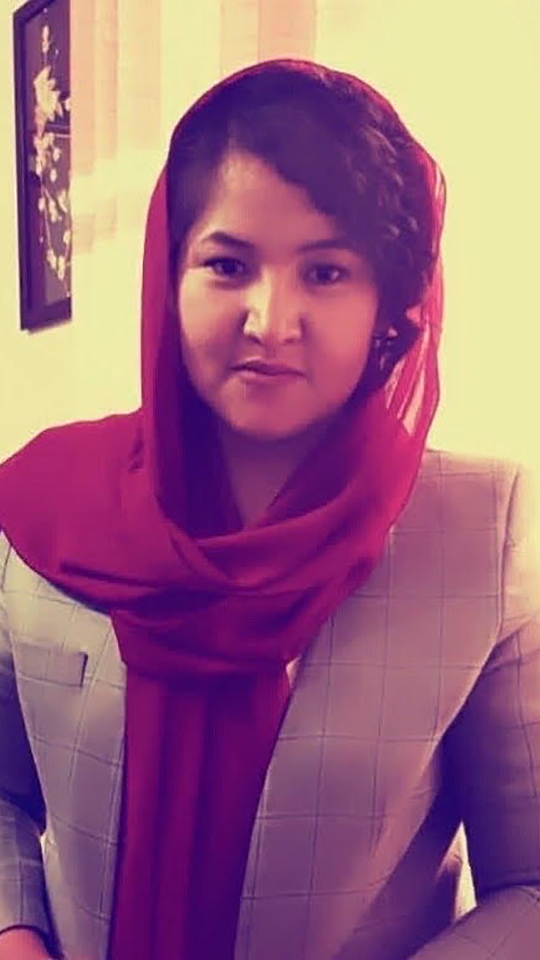
Simah Sahnosh was attending the Asian University for Women remotely from her brother’s apartment in Kabul, Afghanistan, when the U.S. military withdrew from the country. As an evacuee, Sahnosh arrived at Fort McCoy in Wisconsin in August 2021. She is now pursuing her education at Cornell University in New York. Ten of the Afghan evacuees from the Asian University for Women are studying at the University of Wisconsin-Milwaukee. (Credit: Courtesy of Simah Sahnosh)
In an email shared with Wisconsin Watch, a former representative of the Asian University for Women wrote that UW–Milwaukee had “generously offered a full scholarship that includes tuition and housing. UWM has an academic program that will suit your interests and allow you to pursue your goals and dreams in the US.”
Shekiba Sultani was confused by the message. It didn’t say how long the university would cover the full cost of attending. Around the same time, some other women received full tuition scholarship offers from other universities, including Arizona State, which raised money from private donors to fund 61 of the Asian University for Women students for their four-year undergraduate degrees.
That led the women who were placed at UW-Milwaukee to believe they would be treated the same. Back in Afghanistan, they had been admitted by AUW on full scholarship.
But UWM was operating on a different track. English instructors sought funds to support the women in the university’s Intensive English Program. Mari Chevako, a senior lecturer, contacted Eastbrook Church in Milwaukee to explore funding. The church raised a “generous” amount of money and matched each student with a host family, said Chevako, who is a member of the church.
In January, the women finally figured out that they had enrolled only as non-degree students — and that the offer of tuition and housing would end when the intensive English program finished.
“All the girls were saying, ‘(If) we do not have any scholarships, what will happen to us?'” said Tahera Sultani, another student. “It’s so stressful for me.”
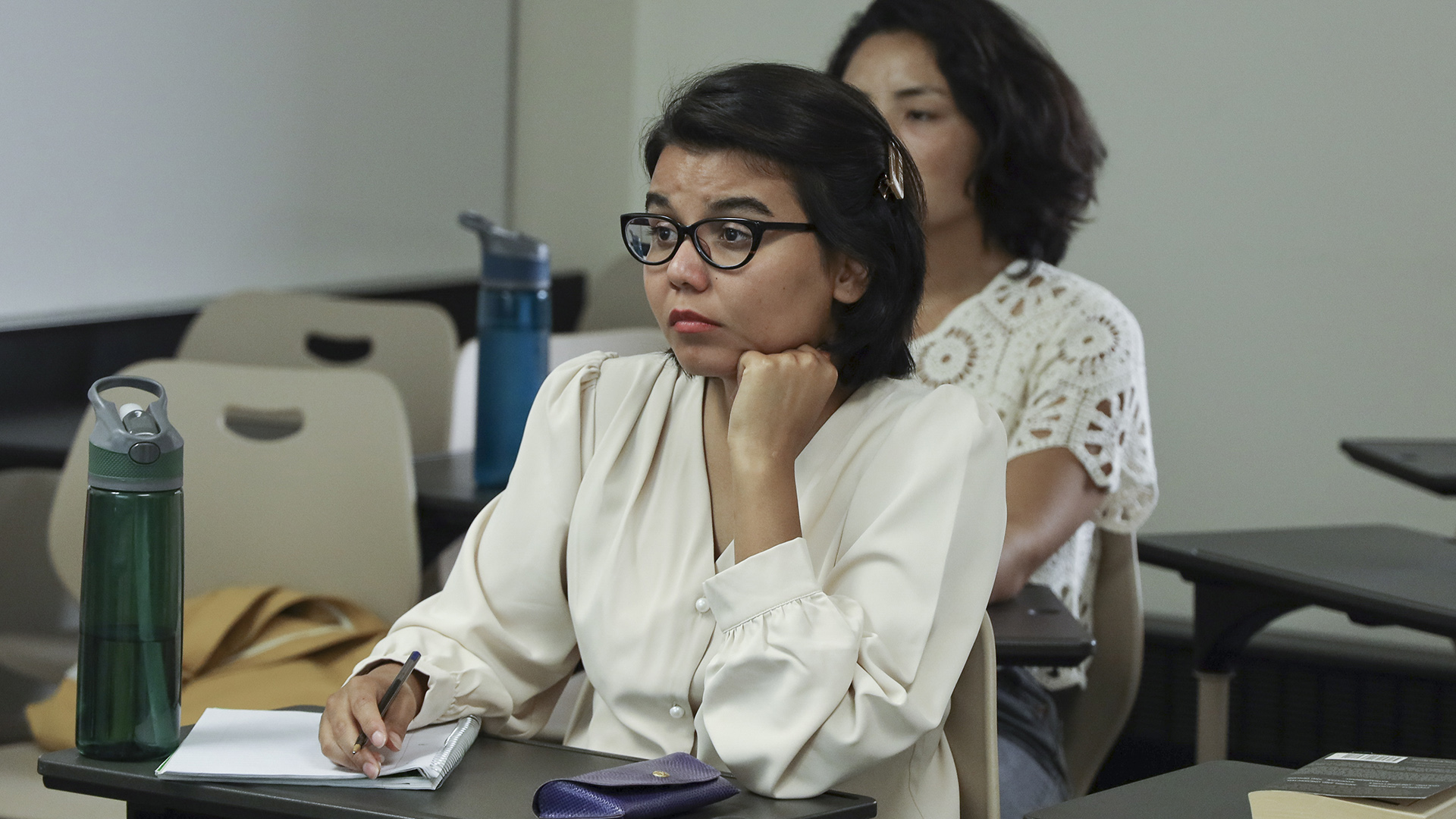
Tahera Sultani listens to her teacher during a summer writing course at the University of Wisconsin-Milwaukee on Aug. 3, 2022. Sultani is among 10 Afghan evacuees who studied in the university’s Intensive English Program and are now pursuing bachelor’s degrees there. (Credit: Amena Saleh / Wisconsin Watch)
Said Haley of the Intensive English Program: “I feel (and) I understand their disappointment and how they see other friends having a different, more secure financial situation. How would that feel? And especially given all the other trauma they’ve experienced, living in that kind of uncertainty is traumatic.”
She added, “We did the best we could.”
Stevens said many universities scrambled to get the women funded for the first year and then needed to come up with the remainder semester by semester. Besides the financial constraints universities face, Stevens said school administrators must weigh access to scholarships against the needs of other students.
Using a Biblical reference, he said, “You don’t want to be in a position of robbing Peter to pay Paul.”
Jobs, extra aid keep students afloat
In the spring of 2022, Eastbrook Church vowed to continue funding the women’s education through their first year of college at UW-Milwaukee. They have launched the Afghan Student Partnership of Milwaukee to collect donations.
To support themselves, the evacuees all secured summer jobs. Delawarzad worked two jobs, as a cashier and a summer school art teacher. Her best friend, Manizha Nazari, was a part-time day care teacher. Shekiba Sultani found a job at Dairy Queen. Tahera Sultani worked weekends at Walgreens.
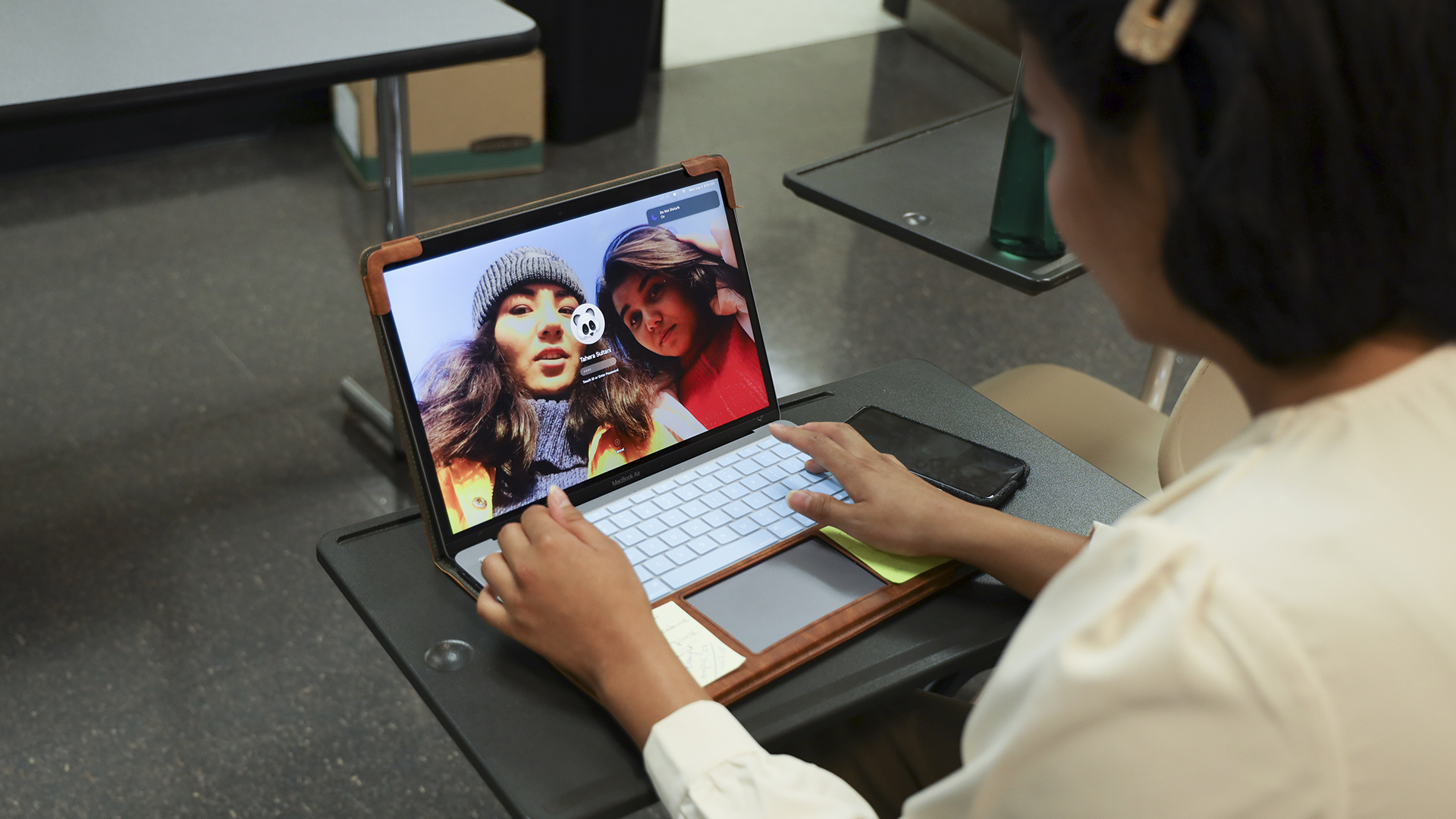
Tahera Sultani is an evacuee from Afghanistan and student in the Intensive English Program at the University of Wisconsin-Milwaukee. Sultani is pursuing a bachelor’s degree in computer science. Photo taken Aug. 3, 2022. (Credit: Amena Saleh / Wisconsin Watch)
Haley said she has encouraged the women to finish the Intensive English Program. But, she told them, “If you want to apply to another university that can promise you a full scholarship, you should do that.”
Erin Barbato, director of the Immigrant Justice Clinic at the UW-Madison, said legally, the women can transfer to another university. But she said it would be “complicated” to move given their resettlement and immigration status.
“I suppose if they qualified to enroll as a regular student at a university or college, maintained lawful status, and could afford to pay or find funding, they could go to a different school,” Barbato said.
Under the resettlement process, the women were admitted to the United States on humanitarian parole. One Congressional Research Service paper showed over 94% of more than 76,000 Afghan evacuees were granted parole, which allows them to remain in the country for two years.
The asylum program faces severe backlogs and lengthy process times. In early August, bipartisan legislation, called the Afghan Adjustment Act, was introduced in Congress to provide a pathway to permanent legal status for Afghan nationals, including those on humanitarian parole. If passed, parolees who have not yet received permanent status would continue to be granted protection from deportation. Still, the bill faces an upward climb in the Senate.
Delawarzad said she is inclined to stay in Milwaukee, saying it would be hard to relocate given the uncertainty around her legal status and what financial support she might receive at another university.
Discrimination against women revived
Still, the students count themselves as lucky. They know what women in Afghanistan are going through under Taliban rule.
Nazari said her friends are stuck at home after the Taliban closed many universities to women. If they step out of the house, they must wear a full-length dress and be accompanied by a man. An Amnesty International study released in July 2022 found widespread repression against women and girls in every aspect of their lives — including access to high school and college — since the Taliban takeover.
For Shekiba Sultani, the issue is personal. One of her sisters was a member of the Afghan National jiu jitsu team but had to quit after six years of training. The Taliban banned women from sports shortly after the Americans left.
“Can you help me evacuate from Afghanistan to some other places where I could do my sports?” her sister pleaded.
“I don’t know,” Sultani responded. “Maybe we’ll do something in the future. Please be patient.”
Back in Cambridge, Massachusetts, Ahmad of AUW has high hopes for the women studying in the United States, saying they could become leaders in their home country one day “if the situation improves.” The university continues to recruit Afghan women to study for undergraduate degrees at the AUW campus this year.
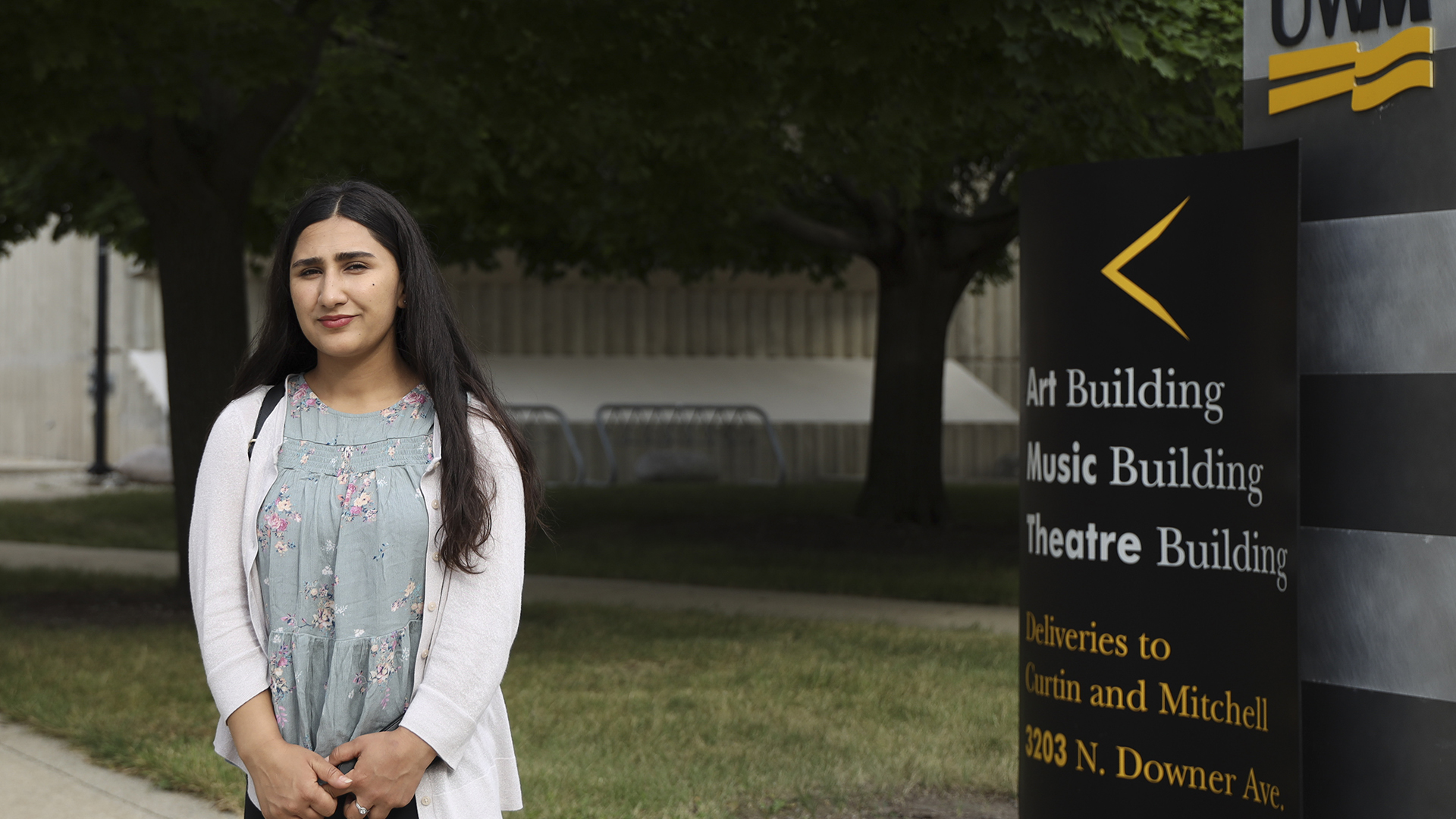
Mahrukh Delawarzad is an Afghan evacuee whose future was jeopardized when the Taliban retook control of Afghanistan, blocking many girls and women from attending high school or college. Delawarzad has resettled in Wisconsin, pursuing a degree from the University of Wisconsin-Milwaukee. She hopes to become a doctor. Photo taken Aug. 3, 2022. (Credit: Amena Saleh / Wisconsin Watch)
Delawarzad said she has been confused by the mixed messages she hears in America about women’s rights. She cited the recent U.S. Supreme Court ruling overturning a woman’s constitutional right to an abortion, saying, “They’re not giving a right for women to control their bodies.”
Still, here she is more free here to pursue an education.
“It’s encouraging me as a woman to go to school, get higher education and live as a human being,” she said. “A woman should be treated equally and speak up if you’re not.”
The nonprofit Wisconsin Watch collaborates with WPR, PBS Wisconsin, other news media and the University of Wisconsin-Madison School of Journalism and Mass Communication. All works created, published, posted or disseminated by Wisconsin Watch do not necessarily reflect the views or opinions of UW-Madison or any of its affiliates.
 Passport
Passport






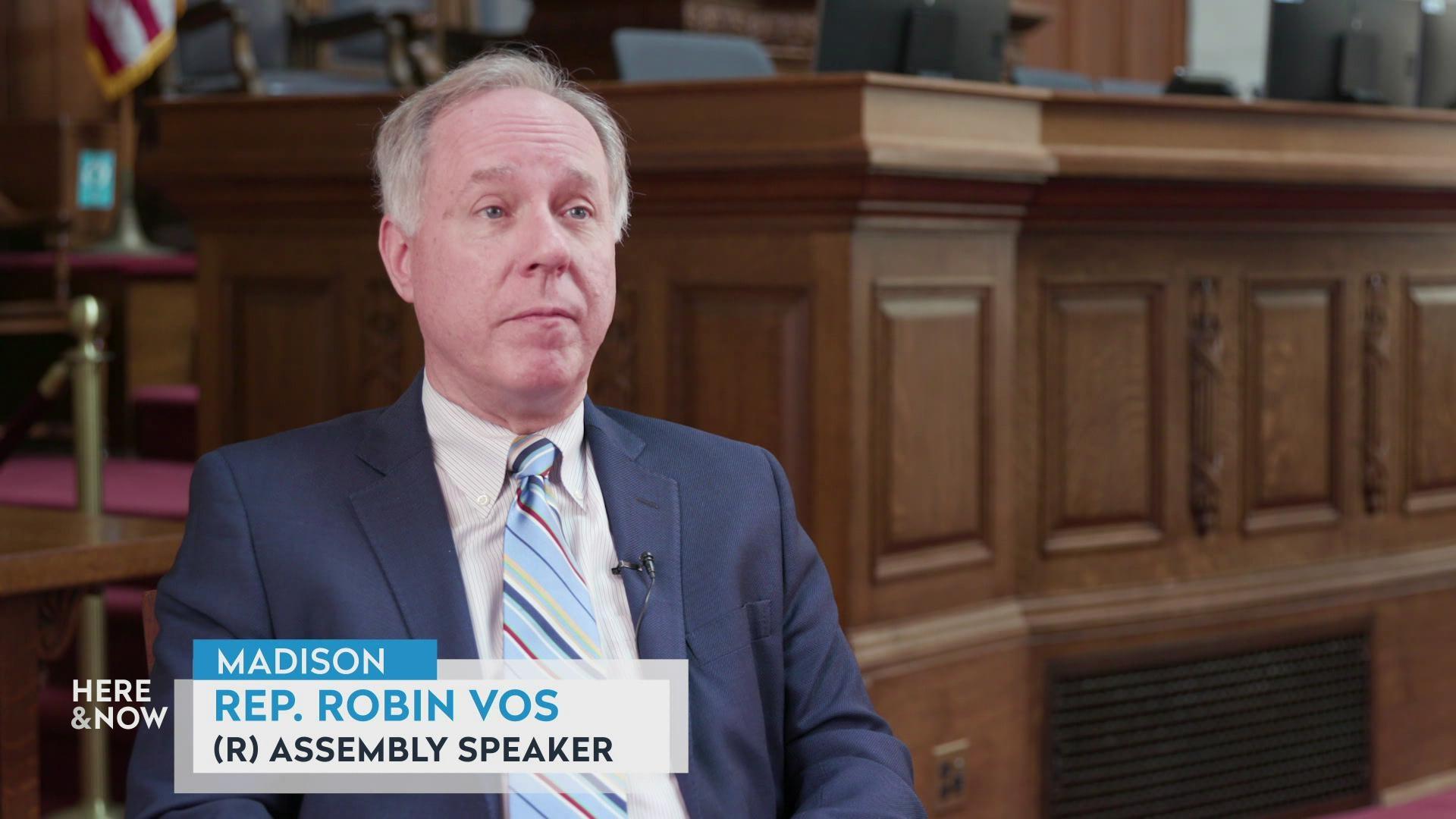
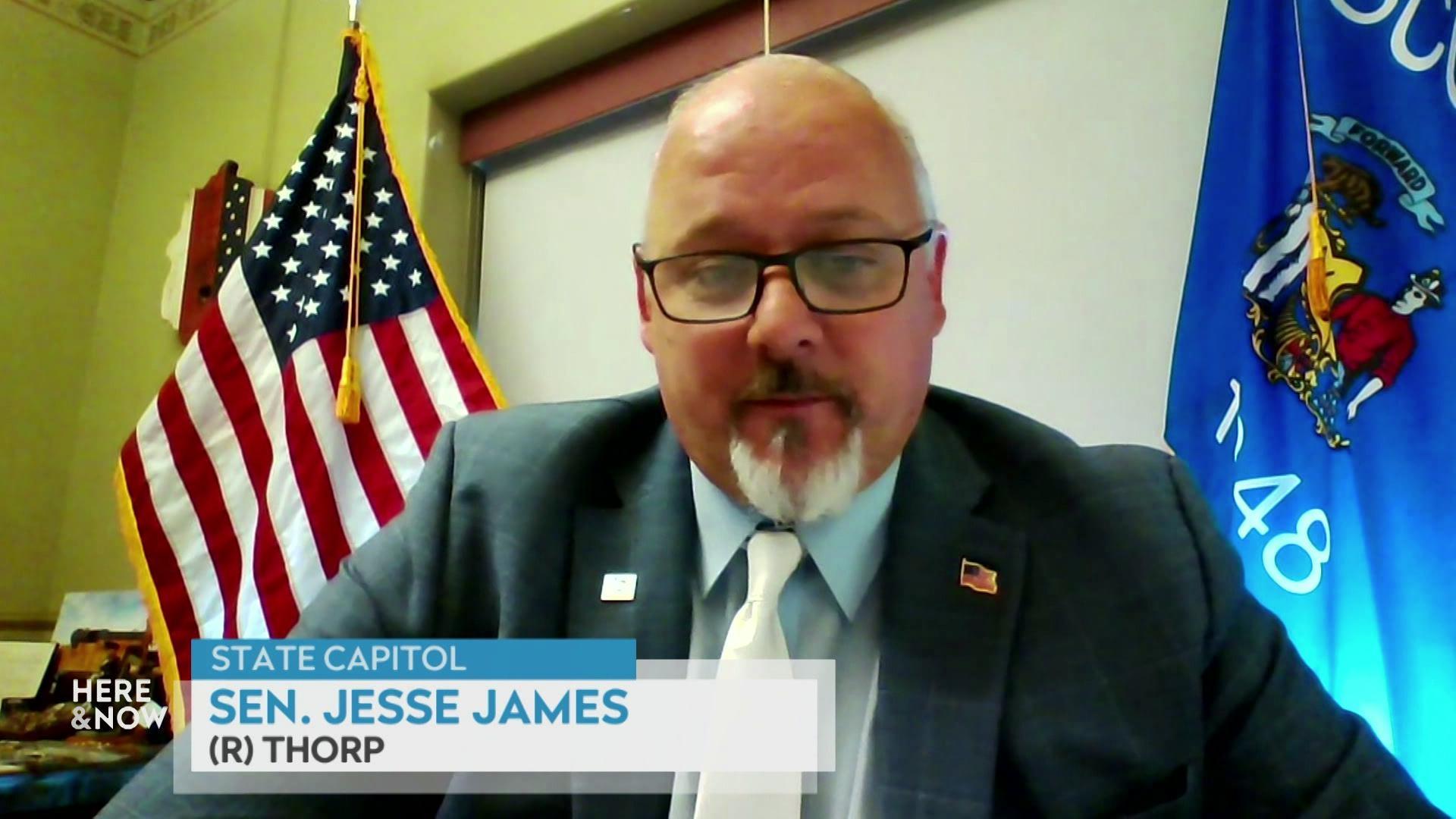
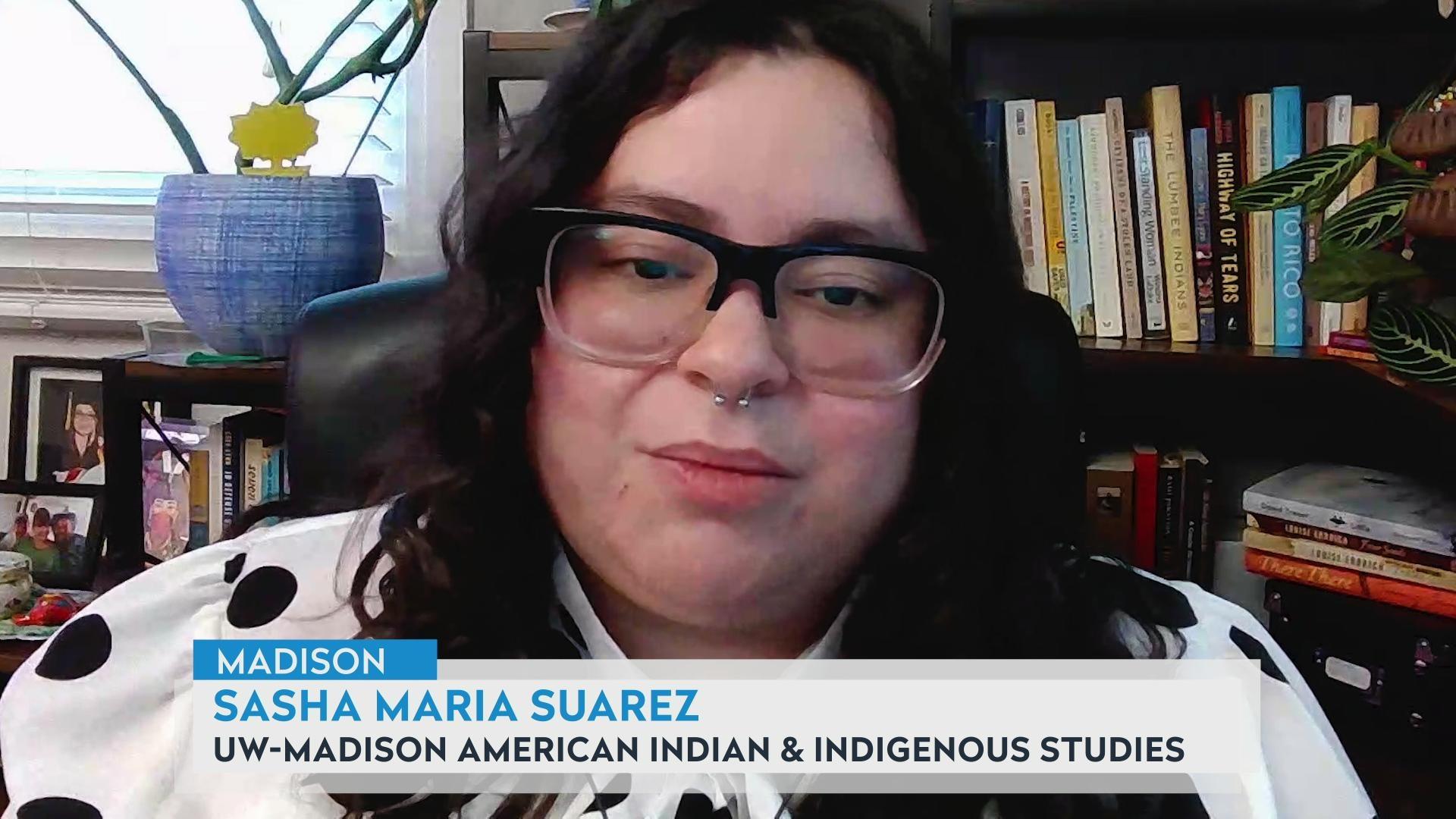
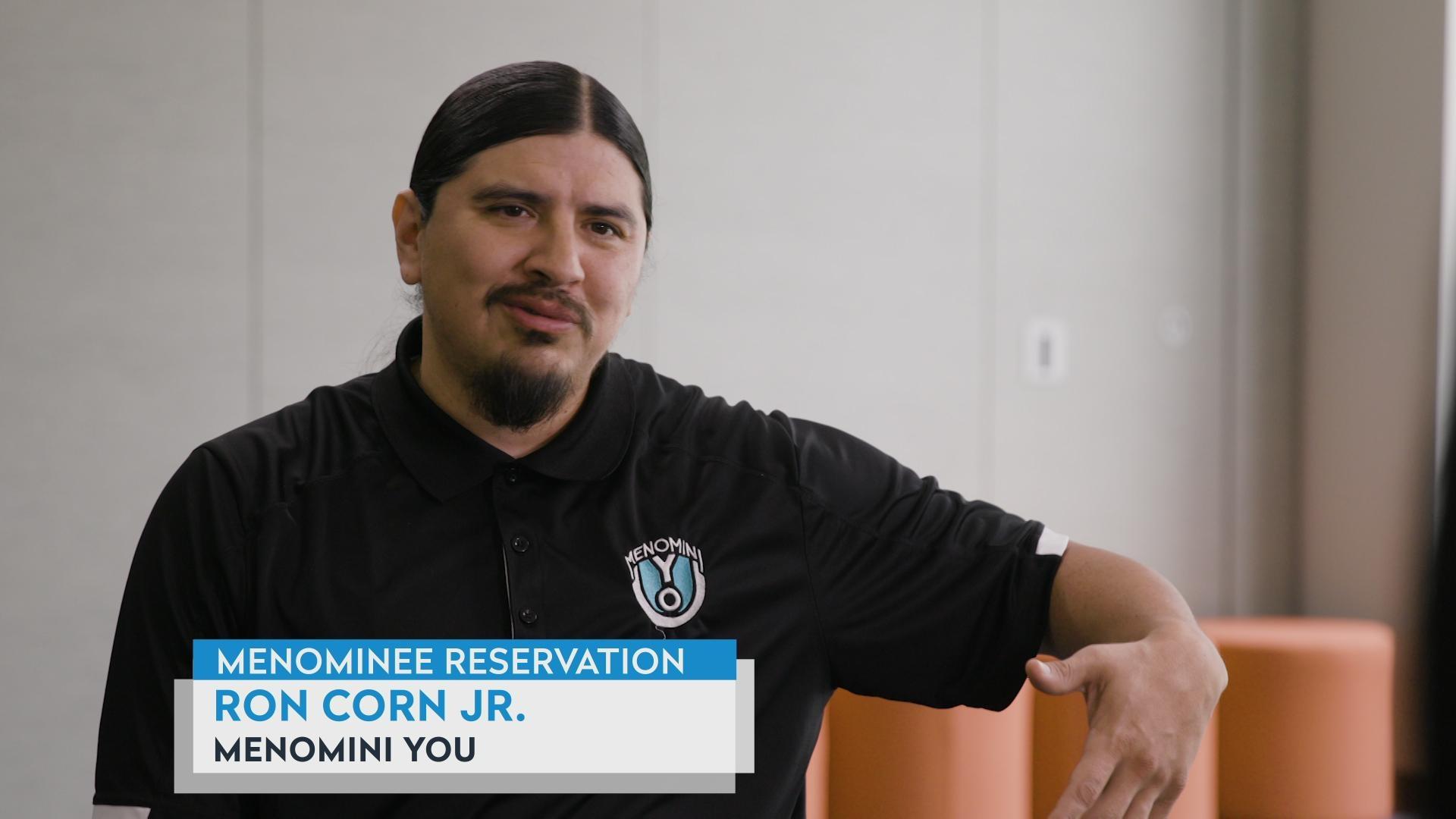

Follow Us